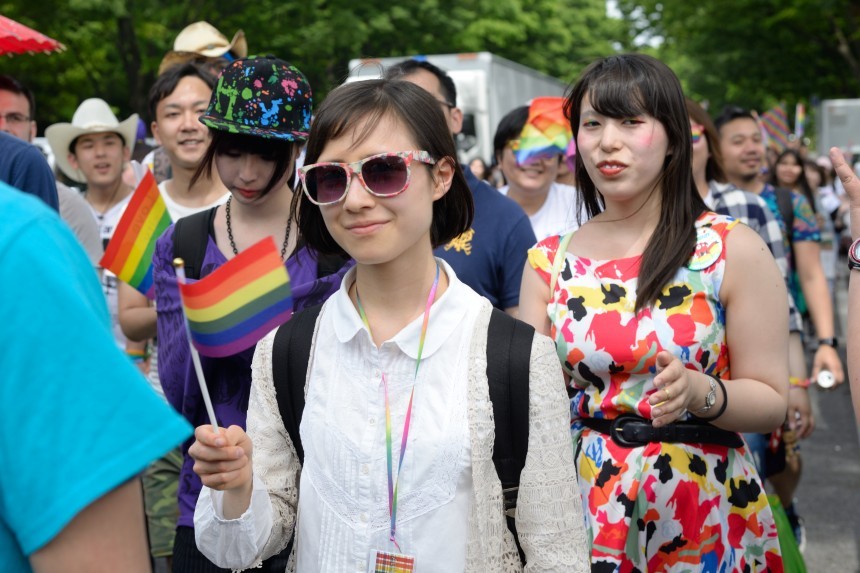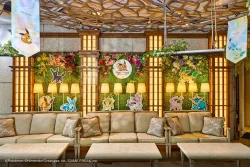
Amidst the monochromatic background of people in suits striding their way to work every day in Tokyo exists a social group that consists of lesbian, gay, bisexual and transgender people, known collectively as the LGBT community. But for the last seven months I have called Tokyo my home, it is still rare for me to see conspicuous signs of the existence of this community in the city.
Why do I not see many members of the LGBT community here in Japan? Though I am living in the one of the largest cities in the world, it seems like their presence is still concealed under this blanket of tradition. I contacted a colleague from Amnesty International Japan to learn more about the matter.
We were familiar with the basic concepts of United Nation Declaration of Human Rights (UNDHR) policies that address issues of discrimination for sexual orientation or gender identity.
It goes without saying that Japan, being a developed state hosting the 2020 Olympics, is assumed to have policies that are aligned with international context. However, this is not the case. Reading between the lines of Japan’s policy, specifically Article 14 which promotes equality based on political, economic or social relations because of race, creed, sex or family origin, there are many complexities that the policy has not been able to address. Considering that there’s an array of avenues where discrimination can easily be overlooked, a manifestation of preventive mechanisms and solutions should be made to address the issue. There are two areas that need the most attention:
Employment
The Japanese constitution contains a clause, “The Act of Securing, Etc. of Equal Opportunity or Treatment between Men and Women in Employment,” which prohibits discrimination and harassment on gender. In 2016, the Health, Labour and Welfare Ministry stated this clause includes the LGBT community. However, according to the Nijiro Diversity Questionnaire, there are still instances where members of the said community experience discrimination in the workplace. A whopping 56.1 percent of LGBT people admitted that they do not disclose their sexual orientation and gender identity due to the fear of losing their position or experiencing discrimination in the workplace. According to the J-ALL survey, transgender individuals may experience discrimination or limited work opportunities if their gender does not match their identification documents.
Health and Life
The highest concern for LGBT people in Japan is mental health. Imagine how complicated it would be for a LGBT youth fearful of disclosing his/her sexual orientation or gender identity to a medical practitioner who isn’t sufficiently trained to conduct gender-friendly check-ups. Or how difficult it is for LGBT couples who are in situations where they are unable to access their partner’s health insurance, request family care leave to attend to their partner, give consent over a partner’s medical treatment, receive the partner’s medical record disclosure in the hospital, claim tax exemption for spouses or have joint custody of an adopted child and so on.
Although Japan mandated a specific article that allows same-sex marriage, the inconsistencies in the wording of Article 24 actually defeat the purpose of LGBT’s acquiring the rights of an actual married couple. The constitution states that couples can be legally wed to each other if they mutually agree to the union, but the word used to identify the persona is ryousei, which just means “two parties.” As a result, LGBT couples are still unable to be legally married because, by default, the term still does not imply gender.
However, some wards and prefectures have created ordinances to alleviate the issue by allowing LGBT couples to rent apartments together and grant them hospital visitation rights. Mie Prefecture, Takarazuka in Hyogo, Naha in Okinawa Prefecture, Sapporo in Hokkaido created similar ordinances in 2015 and 2016.
I chose to live in a vibrant city like Tokyo because I feel in parallel with the mood of the city. With Tokyo 2020 just around the corner, the city feels like it’s blooming and imparting itself to the rest of the world. As “Unity in Diversity” continues to be the spotlight of the anticipated event, it would be an achievement for Japan to balance its policies on LGBT and pursue more cooperation with all members of society, becoming a greater example for the rest of the world to follow.
Sources: “Human Rights Law and Discrimination Against LGBT People in Japan,” Amnesty International www.amnesty.org/download/Documents/ASA2259552017English.pdf
The views expressed are those of the author and do not necessarily reflect the position or opinion of Japan Partnership Co. Ltd. or its partners and sponsors.







